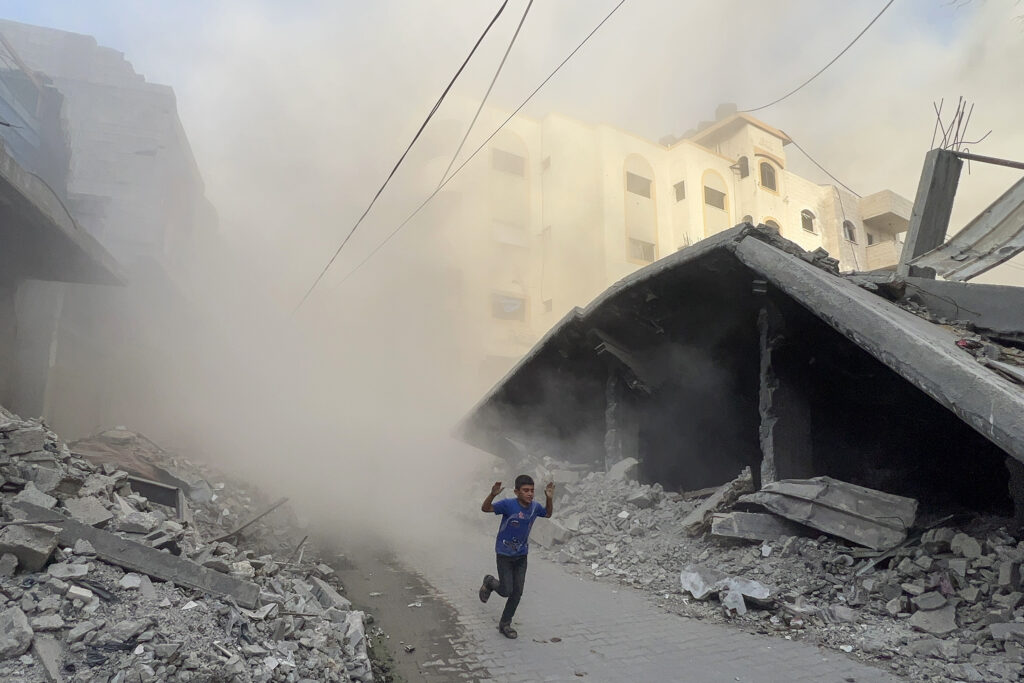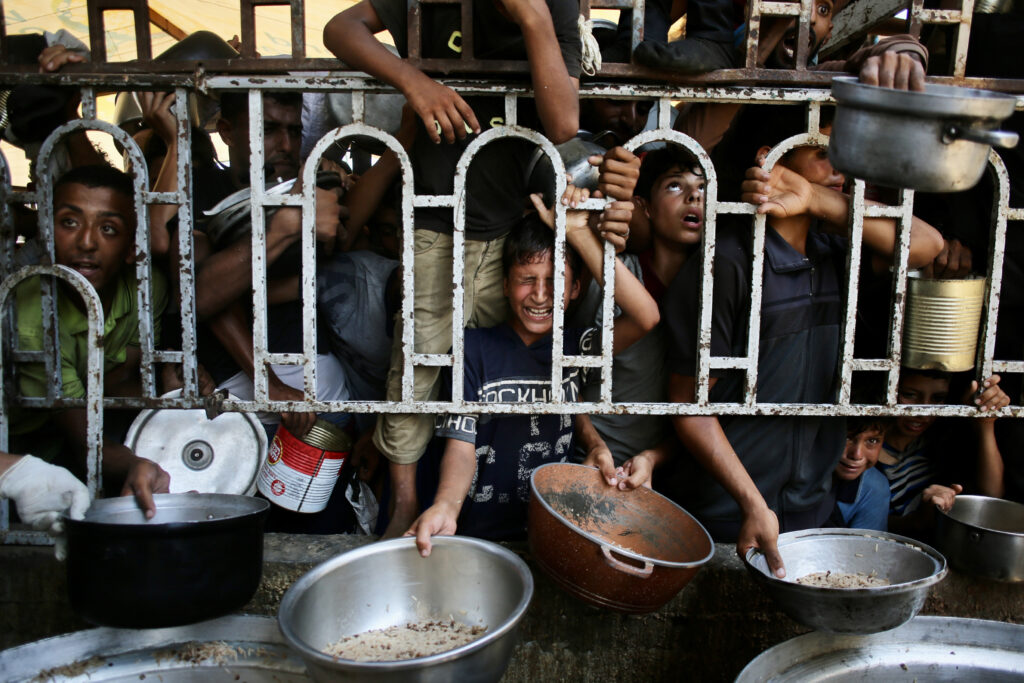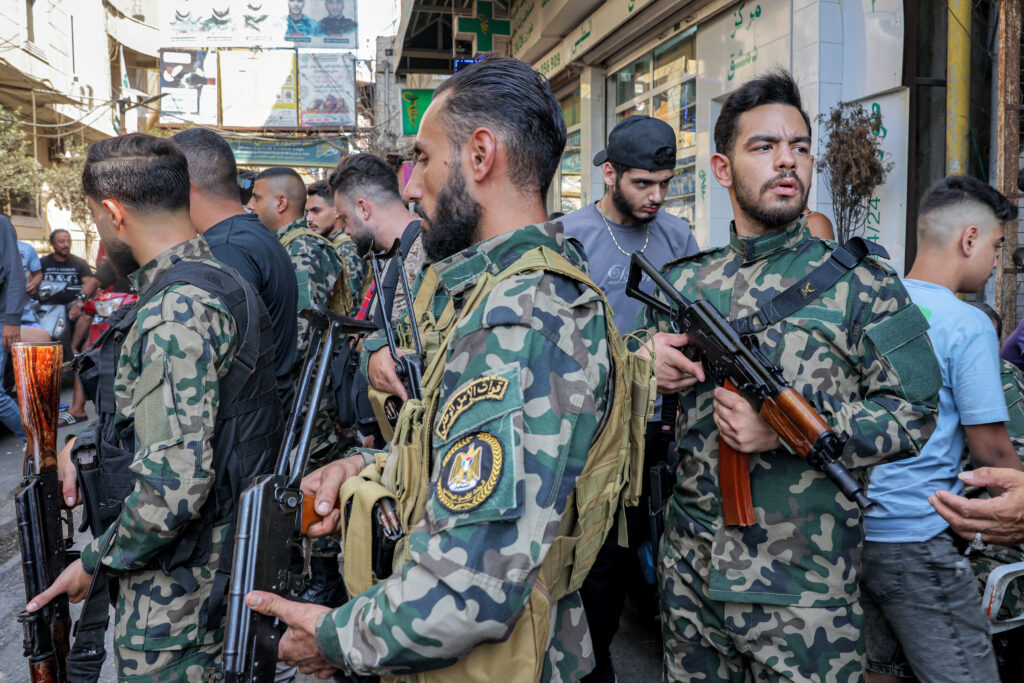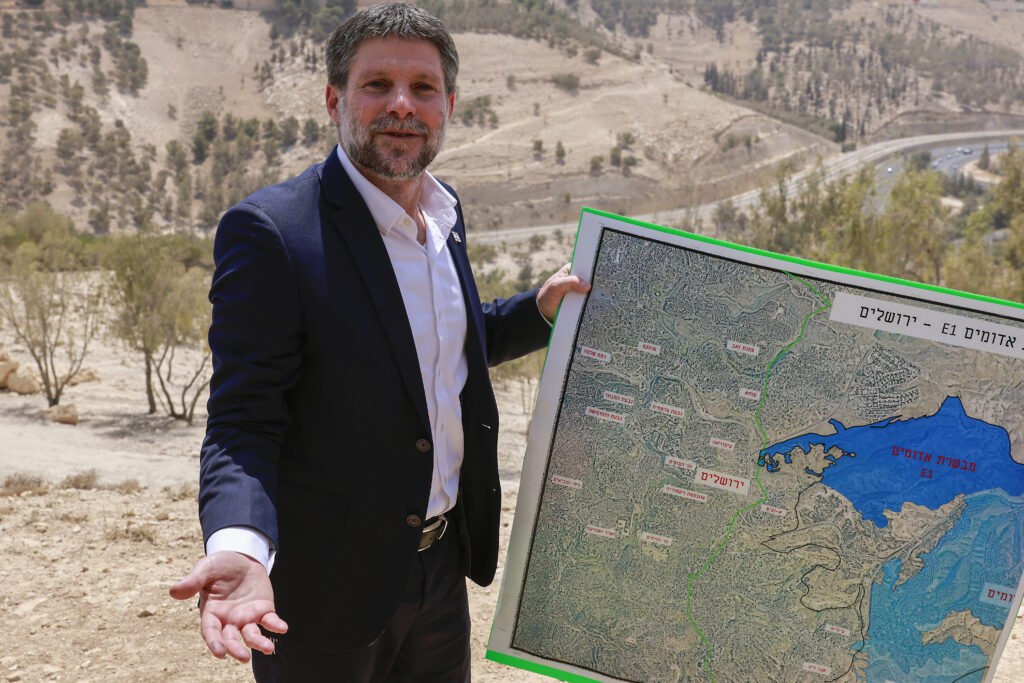AFP Asia Business
Stocks waver ahead of Fed speech but EU tariff deal lifts Europe
Global stock markets mostly fell Thursday ahead of a widely anticipated speech by the US central bank chief, although a deal on American tariffs for a swathe of EU goods gave a late-session boost to European markets.The agreement, struck amid President Donald Trump’s tariffs blitz, will see most EU exports face 15-percent levies. But details …
Stocks waver ahead of Fed speech but EU tariff deal lifts Europe Read More »
Israel PM orders talks to free ‘all our hostages’ as army pounds Gaza City
Israeli Prime Minister Benjamin Netanyahu said Thursday that he had ordered immediate negotiations aimed at freeing all the remaining hostages in Gaza, as Israeli troops hammered the territory’s largest city ahead of a major planned offensive.The call for renewed talks came a day after the defence ministry approved a plan authorising the call-up of roughly 60,000 reservists to help capture Gaza City, home to Hamas’s final stronghold.”I have come to approve the IDF’s (military’s) plans to take control of Gaza City and defeat Hamas,” the prime minister said in a video statement filmed during a visit to the Gaza division’s headquarters in Israel.”At the same time, I have instructed to immediately begin negotiations for the release of all our hostages and the end of the war under conditions acceptable to Israel.””These two matters — defeating Hamas and releasing all our hostages — go hand in hand,” Netanyahu said, without providing details about what the next stage of talks would entail.Meditators have been waiting for days for an official Israeli response to their latest ceasefire proposal, which Hamas accepted earlier this week.Palestinian sources have said the new deal involves staggered hostage releases, while Israel has insisted that any deal see all the captives freed at once.Israel’s plans to expand the fighting and seize Gaza City have sparked international outcry as well as domestic opposition, with the Red Cross joining the condemnation on Thursday, calling the moves “intolerable”.Ahead of the offensive, the Israeli military said the call-up of the reservists would begin in early September, adding the second phase of operation “Gideon’s Chariots” had begun.Earlier, Gaza City residents described relentless bombardments overnight.”The house shakes with us all night long — the sound of explosions, artillery, warplanes, ambulances, and cries for help is killing us,” Ahmad al-Shanti told AFP. Another resident, Amal Abdel-Aal, said she watched the heavy strikes on the area, a week after being displaced from her home in Gaza City’s Al-Sabra neighbourhood. “No one in Gaza has slept — not last night, not for a week. The artillery and air strikes in the east never stop. The sky flashes all night long,” she added. – ‘We are advancing’ -A group of AFP journalists near Israel’s border with Gaza witnessed an air strike by a fighter jet on the northern outskirts of Gaza City on Thursday afternoon, with a massive explosion followed by a large plume of smoke rising into the sky. Several sporadic explosions were heard afterward but it was not possible to determine their origin. Strikes increased in pace later in the afternoon with several large explosions heard near the border. “We are advancing with the efforts toward operations in Gaza City,” military chief Eyal Zamir told troops on Thursday. “We already have troops operating on the outskirts of the city, and more forces will join them later on.” The UN humanitarian agency has warned that the Israeli plan to expand military operations in Gaza City would have “a horrific humanitarian impact” on an already exhausted population.The Israeli military said this week it had also begun informing medical personnel and aid groups in northern Gaza to start making evacuation plans and transferring their equipment to the south. The Gaza health ministry, however, rejected that call on Thursday, saying it would not agree to “any step that would undermine what remains of the health system after the systematic destruction carried out by the occupation authorities”. – Awaiting a response -Israel and Hamas have held indirect negotiations throughout the nearly two-year conflict, paving the way for a pair of short ceasefires during which Israeli hostages were freed in exchange for Palestinian prisoners.Of the 251 hostages seized during Hamas’s October 2023 attack on southern Israel that triggered the war, 49 are still in Gaza, including 27 the Israeli military says are dead.Sources from Hamas and its ally Islamic Jihad told AFP that the latest ceasefire proposal calls for the release of 10 hostages and 18 bodies from Gaza. The remaining hostages would be released in a second phase alongside talks for a wider settlement.Gaza’s civil defence agency said at least 48 people were killed on Thursday by Israeli attacks in various areas across the Palestinian territory, including several casualties in an air strike in Gaza City.Hamas’s October 2023 attack on Israel resulted in the deaths of 1,219 people, mostly civilians, according to an AFP tally based on official figures.Israel’s offensive has killed over 62,000 Palestinians, most of them civilians, according to figures from the health ministry in Hamas-run Gaza, which the United Nations considers reliable.Media restrictions in Gaza and difficulties in accessing many areas mean AFP is unable to independently verify the tolls and details provided by the civil defence agency or the Israeli military.
Israel pounds Gaza City as military takes first moves in offensive
Israel hammered Gaza City and its outskirts overnight, residents said Thursday, as the military announced it had taken initial steps in its push to capture Hamas’s last major stronghold.The newly approved plan authorises the call-up of roughly 60,000 reservists, deepening fears the campaign will worsen the already catastrophic humanitarian crisis in the Gaza Strip.”We are not waiting. We have begun the preliminary actions, and already now, IDF (army) troops are holding the outskirts of Gaza City,” said the Israeli military.Israel’s plans to expand the fighting and seize Gaza City have sparked international outcry as well as domestic opposition. The Red Cross became the latest voice to condemn the plan on Thursday, calling it “intolerable”.Ahead of the offensive, the Israeli military said the call-up of the reservists would begin in early September, adding the second phase of operation “Gideon’s Chariots” had begun.Gaza City residents described relentless bombardments overnight.”The house shakes with us all night long — the sound of explosions, artillery, warplanes, ambulances, and cries for help is killing us,” one of them, Ahmad al-Shanti, told AFP. “The sound is getting closer, but where would we go?”Another resident, Amal Abdel-Aal, said she watched the heavy strikes on the area, a week after being displaced from her home in Gaza City’s Al-Sabra neighbourhood. “No one in Gaza has slept — not last night, not for a week. The artillery and air strikes in the east never stop. The sky flashes all night long,” she added. Gaza civil defence agency spokesman Mahmud Bassal said air strikes and artillery fire overnight targeted areas to the northwest and southeast of Gaza City.- ‘Nowhere safe to go’ -Late Wednesday, the Israeli military detailed a range of operations across the Gaza Strip in recent weeks.It said the manoeuvres and strikes “created the conditions” for the military to intensify pressure on Hamas and lay the groundwork for the next stages of the campaign. The UN humanitarian agency has warned the Israeli plan to expand military operations in Gaza City would have “a horrific humanitarian impact” on the already exhausted population.”Forcing hundreds of thousands to move south is a recipe for further disaster and could amount to forcible transfer,” OCHA said. The UN Human Rights office in the Palestinian territories also voiced concern.”Hundreds of families have been forced to flee, including many children, persons with disabilities, and older people, with nowhere safe to go,” it said.Others reportedly “remain trapped, completely cut off from food, water and medicine supplies”, it added.The Israeli military said this week it had also begun informing medical personnel and aid groups in northern Gaza to start making evacuation plans and transferring their equipment to the south. As Israel tightened its grip on Gaza City’s outskirts, meditators continued to wait for an official Israeli reaction to their latest ceasefire proposal that Hamas accepted earlier this week.- ‘Ball’ in Israel’s court -Israel and Hamas have held a string of indirect negotiations throughout the nearly two-year conflict, paving the way for a pair of short ceasefires during which Israeli hostages were freed in exchange for Palestinian prisoners.Of the 251 captives kidnapped during Hamas’s October 2023 onslaught on southern Israel that triggered the war, 49 are still in Gaza, including 27 the Israeli military says are dead.Sources from Hamas and its ally Islamic Jihad told AFP this week that the latest ceasefire proposal calls for the release of 10 hostages and 18 bodies from Gaza.The remaining hostages would be released in a second phase alongside talks for a wider settlement.Qatar and Egypt, backed by the United States, have overseen several rounds of shuttle diplomacy.Qatar said the latest proposal was “almost identical” to an earlier version approved by Israel, while Egypt said Monday that “the ball is now in its (Israel’s) court”.Late Wednesday, Hamas lambasted the plans to take control of Gaza City, saying in a statement it showed its “blatant disregard” for efforts to broker a ceasefire and hostage release deal.Hamas’s October 2023 attack on Israel resulted in the deaths of 1,219 people, mostly civilians, according to an AFP tally based on official figures.Israel’s offensive has killed at least 62,122 Palestinians, most of them civilians, according to figures from the health ministry in Hamas-run Gaza, which the United Nations considers reliable.Media restrictions in Gaza and difficulties in accessing many areas mean AFP is unable to independently verify the tolls and details provided by the civil defence agency or the Israeli military.
Malnourished Gaza children facing death without aid, says UN
Severely malnourished children in the Gaza Strip will be “certainly condemned to death” unless aid gets to them quickly, UNRWA chief Philippe Lazzarini warned Thursday.The head of the UN agency for Palestinian refugees said hunger was particularly acute in the north — where Gaza City is — where an estimated one million people remain.Lazzarini said an evaluation on how famine has evolved in the Gaza Strip was due to be published soon, adding UNRWA health centres had seen a six-fold increase in the number of severely malnourished children since March.”If no measures are taken immediately, they are certainly condemned to death,” he told the Geneva Press Club.People in the Palestinian territory are already dying of hunger and “there will be more, there’s no doubt about it”, said Lazzarini.Rights group Amnesty International earlier this week accused Israel of enacting a “deliberate policy” of starvation in Gaza.Without naming Israel, Lazzarini labelled it a “manufactured famine” and said food had been used “as a weapon of war”.Israel heavily restricts aid coming into Gaza but has repeatedly rejected claims of deliberate starvation.Israel has announced a plan to take over Gaza City and has warned that the north of the territory will be evacuated.The UNRWA commissioner-general warned that a weakened, hungry population would struggle to withstand a new military operation in the city.”We had described hell on Earth in Gaza,” he said.”If this scenario were to unfold, even if we talk about the evacuation of people from Gaza to the south, many will no longer even have the strength to move.”
Palestinian camps in Lebanon to start disarming: committee
Armed Palestinian groups in refugee camps in Lebanon will start handing over their weapons to the authorities on Thursday, a joint committee said, following a deal reached in May.The announcement comes after the Lebanese government also tasked the army with formulating a plan to disarm the militant group Hezbollah by the end of the year.”Today marks the beginning of the first phase of the process of handing over weapons from inside the Palestinian camps,” Lebanese-Palestinian Dialogue Committee chairman Ramez Dimashkieh said in a statement.The process would begin with the Burj al-Barajneh camp in Beirut, where an initial batch of weapons would be placed in the custody of the Lebanese army, Dimashkieh added.An AFP photojournalist saw dozens of fighters in military fatigues holding Kalashnikov rifles as crowds gathered in front of the Beirut headquarters of Palestinian president Mahmud Abbas’s Fatah movement.A Palestinian security official told AFP on condition of anonymity that “Fatah will begin handing over its weapons in Burj al-Barajneh camp within the framework of the coordination with the Lebanese army”.Abbas visited Beirut in May and reached an agreement with Lebanese President Joseph Aoun that all arms in Palestinian camps would be surrendered to the state.A Palestinian security source at Burj al-Barajneh camp said “Fatah’s initiative in beginning to hand over weapons is symbolic, and came as a result of an agreement between Aoun and the Palestinian president’s son, Yasser Abbas, who is currently visiting Beirut”.It aims to “encourage the remaining (Palestinian armed) factions to take the same step”, the source said, noting that the other influential factions in the camp “have not yet decided to hand over their weapons”.The Palestinian Authority does not exercise power over the remaining factions in the camps, most notably Hamas.- ‘Illegitimate weapons’ -Lebanon has come under heavy US pressure to disarm Hamas’s ally Hezbollah after the Iran-backed Lebanese movement was dealt a massive blow during its war with Israel last year.That conflict was the culmination of a year of hostilities launched by Hezbollah in support of Hamas after the Palestinian group’s October 2023 attack on Israel that sparked the Gaza war.Lebanon hosts about 222,000 Palestinian refugees, according to the United Nations agency UNRWA, with many living in overcrowded camps outside of the state’s control.The Ain al-Hilweh camp near the southern city of Sidon, for instance, is the largest in the country and houses individuals wanted by the Lebanese authorities.The handover of weapons was expected to begin in mid-June, but in an interview with Saudi-owned broadcaster Al Arabiya last week, Aoun attributed the delay to the Iran-Israel war that broke out that month, as well as to “internal considerations within the Palestinian Authority”.Badie al-Habet, a member of the Fatah leadership in Beirut, told AFP that Thursday would see the “turning over of illegitimate weapons in the hands of illegitimate individuals”.The weapons held by Palestinian security personnel in the refugee camps, however, were not included in the handover, he added.Palestinian armed factions, including Hamas, have repeatedly fired at Israel from Lebanon since the start of the Gaza war and the ensuing conflict between Israel and Hezbollah, which a November ceasefire sought to end.The ceasefire stipulated that only the Lebanese military would bear arms and that all forces would withdraw from the country’s south, with the exception of the army and UN peacekeepers.Israel has nonetheless continued to strike Lebanon regularly, and its troops still hold five positions in the south that it deems strategic.Hezbollah, meanwhile, has said it will resist efforts to disarm it.
Microsoft re-joins handheld gaming fight against Nintendo’s Switch
The record launch in June for the Nintendo Switch 2, a game console that can be played at home or on the go, heralds a new portable race that Microsoft aims to win with a handheld version of its Xbox.Selling itself as the option for discerning, hardcore gamers, Microsoft’s Xbox ROG Ally console is available …
Microsoft re-joins handheld gaming fight against Nintendo’s Switch Read More »
Israel approves major West Bank settlement project
Israel approved a major settlement project on Wednesday in an area of the occupied West Bank that the international community has warned threatens the viability of a future Palestinian state.Israel has long had ambitions to build on the roughly 12-square-kilometre (five-square-mile) parcel known as E1 just east of Jerusalem, but the plan had been stalled for years amid international opposition.The latest announcement also drew condemnation, with UN chief Antonio Guterres saying the settlement would effectively cleave the West Bank in two and pose an “existential threat” to a contiguous Palestinian state.Last week, Israel’s far-right Finance Minister Bezalel Smotrich backed plans to build around 3,400 homes on the ultra-sensitive tract of land, which lies between Jerusalem and the Israeli settlement of Maale Adumim.”I am pleased to announce that just a short while ago, the civil administration approved the planning for the construction of the E1 neighbourhood,” the mayor of Maale Adumim, Guy Yifrach, said in a statement on Wednesday.All of Israel’s settlements in the West Bank, occupied since 1967, are considered illegal under international law, regardless of whether they have Israeli planning permission.The Ramallah-based Palestinian Authority (PA) slammed the latest move.”This undermines the chances of implementing the two-state solution, establishing a Palestinian state on the ground, and fragments its geographic and demographic unity,” the PA’s foreign ministry said in a statement.It added the move would entrench “division of the occupied West Bank into isolated areas and cantons that are disconnected from one another, turning them into something akin to real prisons, where movement is only possible through Israeli checkpoints and under the terror of armed settler militias”.Israel heavily restricts the movement of West Bank Palestinians, who must obtain permits from authorities to travel through checkpoints to cross into east Jerusalem or Israel.Guterres repeated a call for Israel to “immediately halt all settlement activity”, warning that the E1 project would be “an existential threat to the two-State solution”, his spokesperson said.British Foreign Secretary David Lammy also rejected the plans, saying it would “divide a Palestinian state in two (and) mark a flagrant breach of international law”. Jordan’s King Abdullah II denounced the project as well, adding that “the two-state solution is the only way to achieve a just and comprehensive peace”.- ‘Bury’ Palestinian statehood -Violence in the West Bank has soared since the October 7, 2023 Hamas attack on Israel that triggered the Gaza war.Since then, Israeli troops and settlers have killed at least 971 Palestinians in the West Bank, including many militants, according to health ministry figures.Over the same period, at least 36 Israelis, including security forces, have been killed in Palestinian attacks or during Israeli military operations, according to official figures.Aviv Tatarsky, a researcher at Ir Amim, an Israeli NGO focusing on Jerusalem within the context of the Israeli-Palestinian conflict, condemned the greenlighting of the E1 project.”Today’s approval demonstrates how determined Israel is in pursuing what Minister Smotrich has described as a strategic programme to bury the possibility of a Palestinian state and to effectively annex the West Bank,” he said.”This is a conscious Israeli choice to implement an apartheid regime,” he added, calling on the international community to take urgent and effective measures against the move. Far-right Israeli ministers have in recent months openly called for Israel’s annexation of the territory.Israeli NGO Peace Now, which monitors settlement activity in the West Bank, said last week that infrastructure work in E1 could begin within a few months, and housing construction within about a year.Excluding east Jerusalem, the West Bank is home to around three million Palestinians, as well as about 500,000 Israeli settlers.






